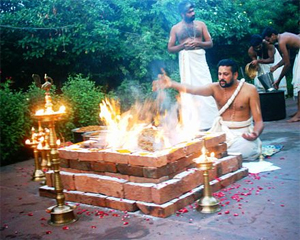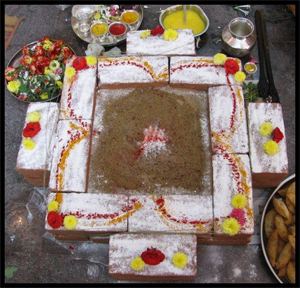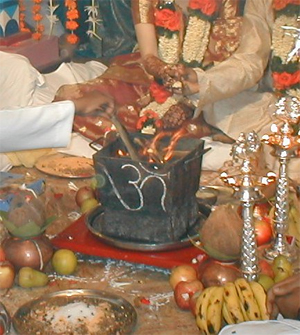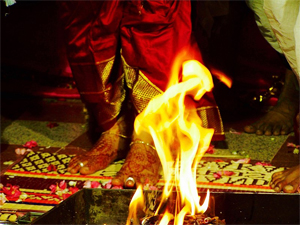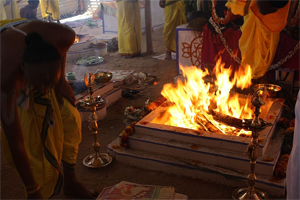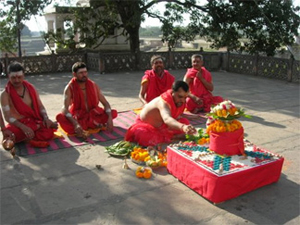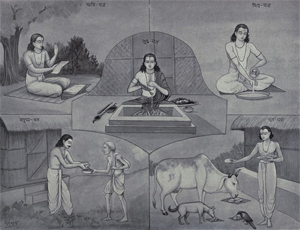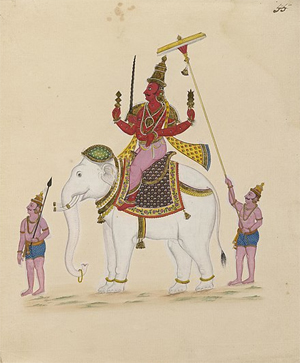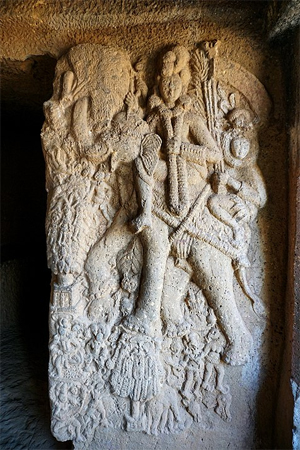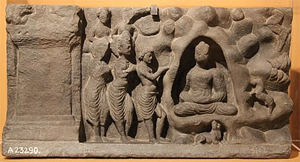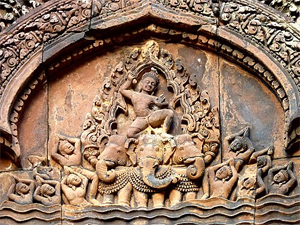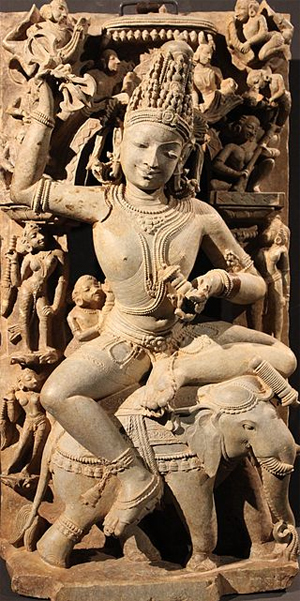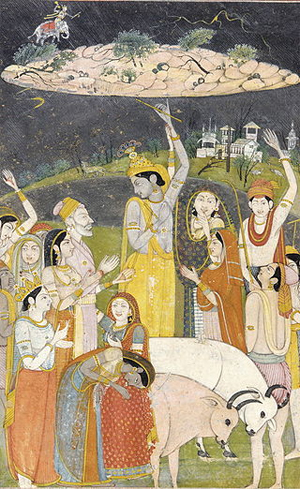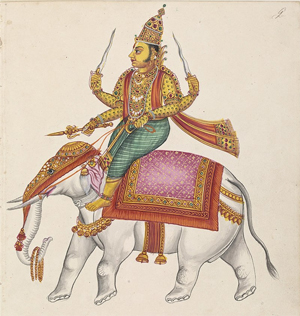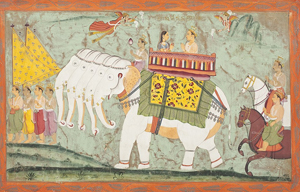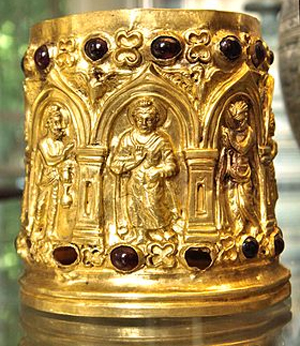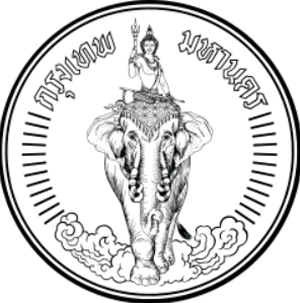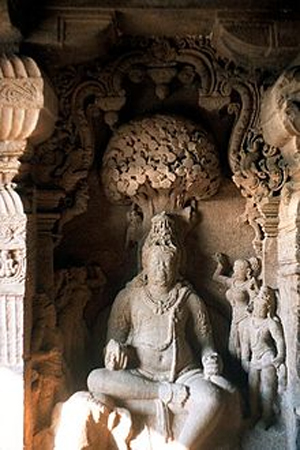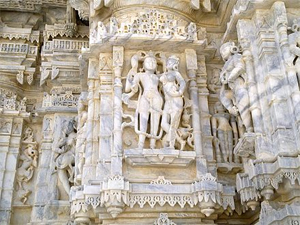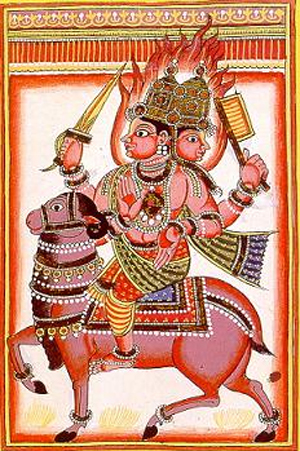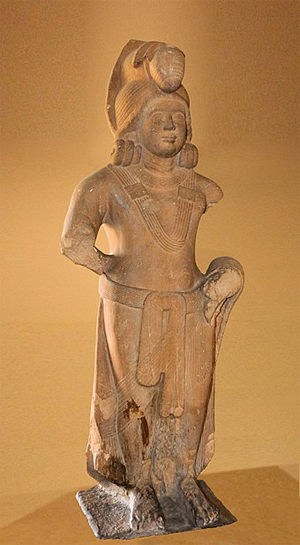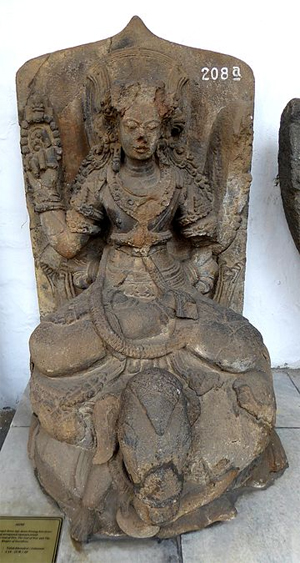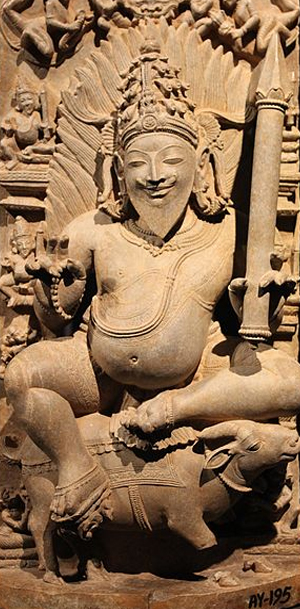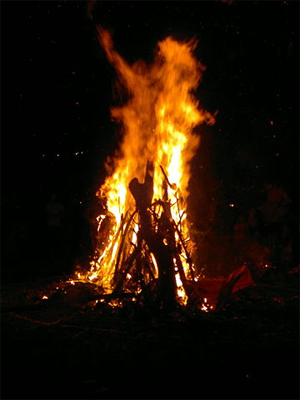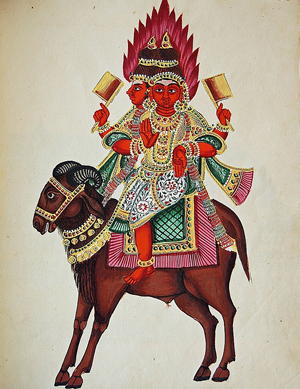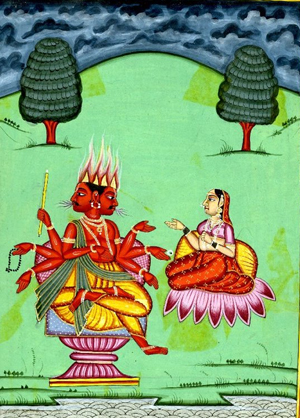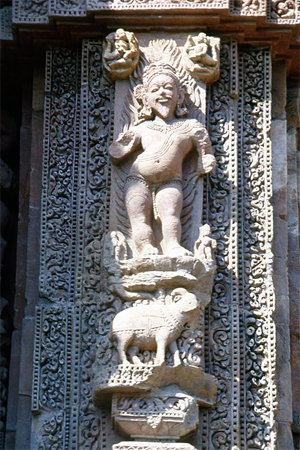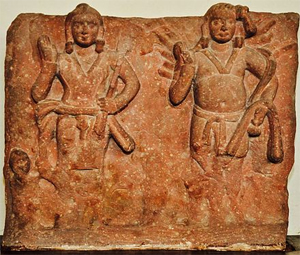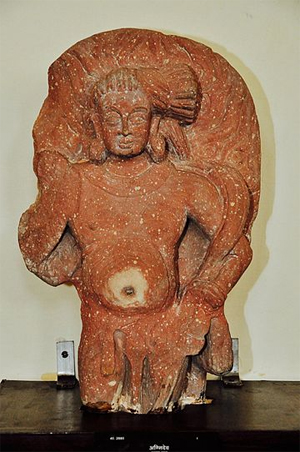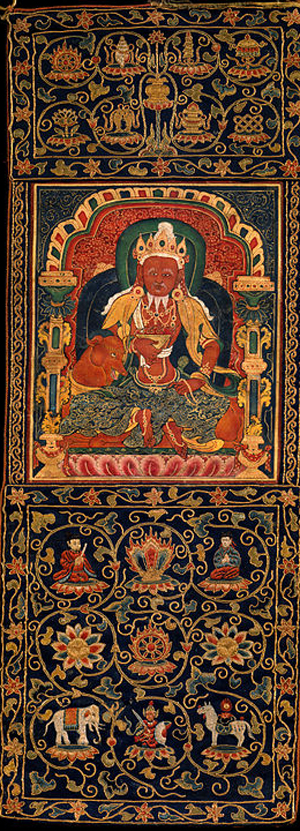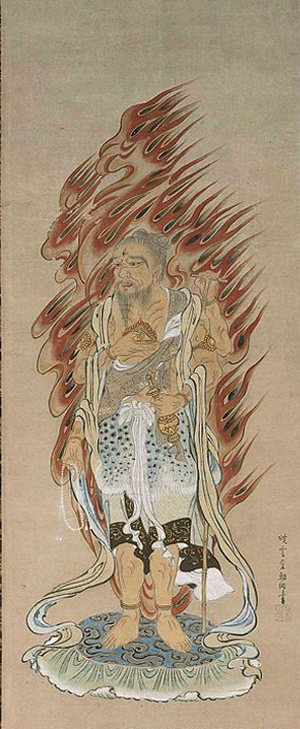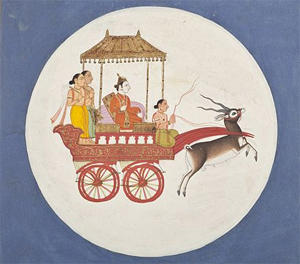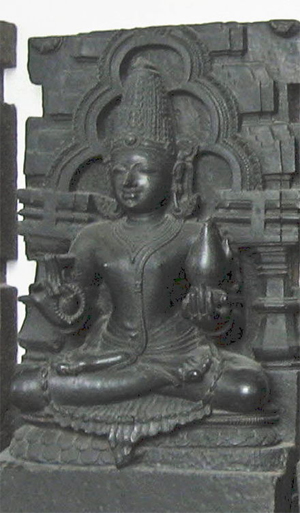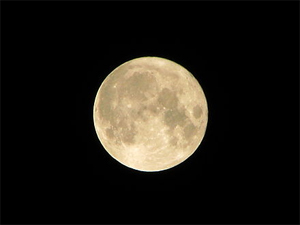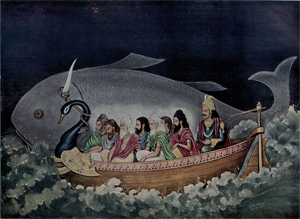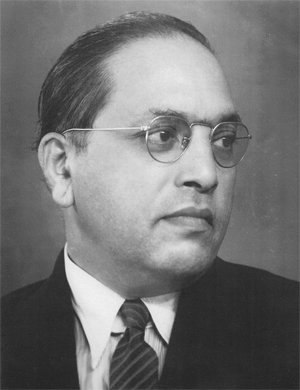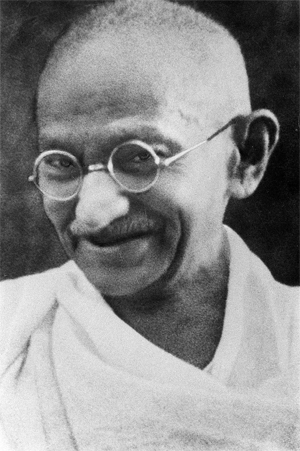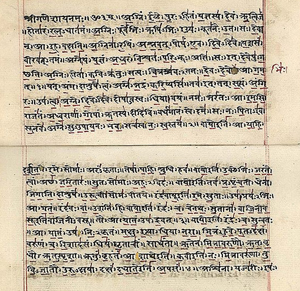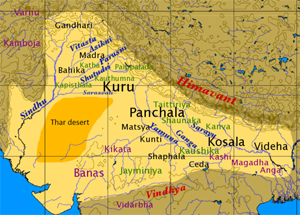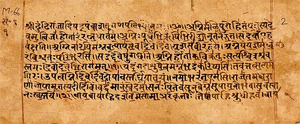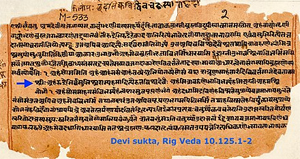by Theosophy Wiki
Accessed: 9/7/20
Henry Kiddle was an American educator with an interest in spiritualism, best known for accusing Mahatma Koot Hoomi of plagiarism. He was born on January 15, 1824 in Bath, England. During the years 1846-1856, he was principal of a grammar school. He became deputy superintendent, and later superintendent, of schools in New York City. However, in 1879, he was forced to resign due to adverse public reaction to his belief in spiritualism. That year, New York Authors' Publishing Company published a book called Spirit Communications - Presenting a Review of the Future Life, with Kiddle as editor. He died in 1891.[1]
The Kiddle Incident
On August 15, 1880, Mr. Kiddle gave a lecture at Mount Pleasant, New York convention, entitled "The Present Outlook of Spiritualism". This speech was published in the same month in Boston in the The Banner of Light magazine.
In December 1880 certain passages from this talk appeared in one of the Mahatma Letters received by Mr. Sinnett. In 1881, the latter published his book The Occult World, in which much of this letter was reproduced verbatim.
Mr. Kiddle read the book and, he claimed, wrote to Sinnett through his publisher, although it is possible that this letter was not received. On September 1, 1883, he wrote to Stainton Moses (M.A. Oxon), then editor of Light (Vol. III, No. 139, Sept. 1, 1883, p. 392), accusing Mahatma K. H. of plagiarism. Sinnett responded to this letter at once, from which resulted a great deal of correspondence.[2]
For some time the Mahatma did not bother to answer the charges of plagiarism, apparently attaching little importance to it. But seeing how distressed Sinnett was over the whole matter, he undertook to explain. Eventually, the Master allowed to refute the charges publicly without giving much explanation, only based on the fact that he had used Mr. Kiddle's sentences modifying them to express his own ideas, and therefore he was not plagiarizing concepts but only using well-constructed sentences in English to suit his own purposes:
Having distorted the ideas "appropriated", and, as now published — diverted them from their original intention to suit my own "very different purpose", on such grounds my literary larceny does not appear very formidable after all?[3]
Mme. Blavatsky published in The Theosophist an editorial entitled "Have we to Lower the Flag of Truce?" arguing on these lines.[4]
But in one of his letters the Master explained to Mr. Sinnett how this came to happen, although he asked the Englishman to keep the explanation to himself and a few other Theosophists. He wrote:
I had directed my attention some two months previous to the great annual camping movement of the latter [the American Spiritualists], in various directions, among others to Lake or Mount Pleasant. Some of the curious ideas and sentences representing the general hopes and aspirations of the American Spiritualists remained impressed on my memory, and I remembered only these ideas and detached sentences quite apart from the personalities of those who harboured or pronounced them. Hence, my entire ignorance of the lecturer whom I have innocently defrauded as it would appear, and who now raises the hue and cry.[5]
The case got more confused because the letter precipitated by a young and inexperienced chela omitted some passages where the Master made more explicit his reference to ideas of the American Spiritualists. He explained:
Well, as soon as I heard of the charge — the commotion among my defenders having reached me across the eternal snows — I ordered an investigation into the original scraps of the impression. At the first glance I saw that it was I, the only and most guilty party, — the poor little boy having done but that which he was told.[6]
The letter in question was framed by me while on a journey and on horse-back. It was dictated mentally, in the direction of, and "precipitated" by, a young chela not yet expert at this branch of Psychic chemistry, and who had to transcribe it from the hardly visible imprint. Half of it, therefore, was omitted and the other half more or less distorted by the "artist." When asked by him at the time, whether I would look it over and correct I answered, imprudently, I confess — "anyhow will do, my boy — it is of no great importance if you skip a few words." I was physically very tired by a ride of 48 hours consecutively, and (physically again) — half asleep. Besides this I had very important business to attend to psychically and therefore little remained of me to devote to that letter. When I woke I found it had already been sent on, and, as I was not then anticipating its publication, I never gave it from that time a thought.[7]
I, in this instance, having at the moment more vividly in my mind the psychic diagnosis of current Spiritualistic thought, of which the Lake Pleasant speech was one marked symptom, unwittingly transferred that reminiscence more vividly than my own remarks upon it and deductions therefrom. So to say, (the "despoiled victim's" — Mr. Kiddle's — utterances) came out as a "high light" and were more sharply photographed (first in the chela's brain and thence on the paper before him, a double process and one far more difficult than "thought reading" simply) while the rest, — my remarks thereupon and arguments — as I now find, are hardly visible and quite blurred on the original scraps before me.[8]
In letter 117 the Master offers the text as originally intended ...
My good and faithful friend — the explanation herein contained would have never been made but that I have of late perceived how troubled you were during your conversations upon the subject of "plagiarism" with some friends — C.C.M. particularly. Now especially that I have received your last in which you mention so delicately "this wretched little Kiddle incident," to withhold truth from you — would be cruelty; nevertheless, to give it out to the world of prejudiced and malignantly disposed Spiritualists, would be sheer folly. Therefore, we must compromise: I must lay both yourself and Mr. Ward, who shares my confidence, under a pledge never to explain without special permission from me the facts hereinafter stated by me to anyone — not even to M. A. Oxon and C. C. Massey included for reasons I will mention presently and that you will readily understand. If pressed by any of them you may simply answer that the "psychological mystery" was cleared up to yourself and some others; and — IF satisfied — you may add, that "the parallel passages" cannot be called plagiarism or words to this effect. I give to you carte blanche to say anything you like — even the reason why I rather have the real facts withheld from the general public and most of the London Fellows — all except the details you alone with a few others will know. As you will perceive, I do not even bind you to defend my reputation — unless you feel yourself satisfied beyond any doubt, and have well understood the explanation yourself. And now I may tell you why I prefer being regarded by your friends an "ugly plagiarist."
Having been called repeatedly a "sophist," a "myth," a "Mrs. Harris" and a "lower intelligence" by the enemies, I rather not be regarded as a deliberate artificer and a liar by bogus friends — I mean those who would accept me reluctantly even were I to rise to their own ideal in their estimation instead of the reverse — as at present. Personally, I am indifferent, of course, to the issue. But for your sake and that of the Society I may make one more effort to clear the horizon of one of its "blackest" clouds. Let us then recapitulate the situation and see what your Western sages say of it. "K.H." — it is settled — is a plagiarist — if it be, after all a question of K.H. and not of the "two Occidental Humourists." In the former case, an alleged "adept" unable to evolve out of his "small oriental brain" any idea or words worthy of Plato turned to that deep tank of profound philosophy, the Banner of Light, and drew therefrom the sentences best fitted to express his rather entangled ideas, which had fallen from the inspired lips of Mr. Henry Kiddle! In the other alternative, the case becomes still more difficult to comprehend — save on the theory of the irresponsible mediumship of the pair of Western jokers. However startling and impracticable the theory, that two persons who have been clever enough to carry on undetected the fraud of personating for five years several adepts — not one of whom resembles the other; — two persons, of whom one, at any rate, is a fair master of English and can hardly be suspected of paucity of original ideas, should turn for a bit of plagiarism to a journal as the Banner, widely known and read by most English knowing Spiritualists; and above all, pilfer their borrowed sentences from the discourse of a conspicuous new convert, whose public utterances were at the very time being read and welcomed by every medium and Spiritualist; however improbable all this and much more, yet any alternative seems more welcome than simple truth. The decree is pronounced; "K.H.", whoever he is, has stolen passages from Mr. Kiddle. Not only this, but as shown by "a Perplexed Reader" — he has omitted inconvenient words and has so distorted the ideas he has borrowed as to divert them from their original intention to suit his own very different purpose."
Well, to this, if I had any desire to argue out the question I might answer that of what constitutes plagiarism, being a borrowing of ideas rather than of words and sentences, there was none in point of fact, and I stand acquitted by my own accusers. As Milton says — "such kind of borrowing as this, if it be not bettered by the borrower is accounted plagiary." Having distorted the ideas "appropriated", and, as now published — diverted them from their original intention to suit my own "very different purpose", on such grounds my literary larceny does not appear very formidable after all? And even, were there no other explanation offered, the most that could be said is, that owing to the poverty of words at the command of Mr. Sinnett's correspondent, and his ignorance of the art of English composition, he has adapted a few of innocent Mr. Kiddle's effusions, some of his excellently constructed sentences — to express his own contrary ideas. The above is the only line of argument I have given to, and permitted to be used in, an editorial by the "gifted editor" of the Theosophist, who has been off her head since the accusation. Verily woman — is a dreadful calamity in this fifth race! However, to you and some few, whom you have permission to select among your most trusted theosophists, taking first care to pledge them by word of honour to keep the little revelation to themselves, I will now explain the real facts of this "very puzzling" psychological mystery. The solution is so simple, and the circumstances so amusing, that I confess I laughed when my attention was drawn to it, some time since. Nay, it is calculated to make me smile even now, were it not the knowledge of the pain it gives to some true friends.
The letter in question was framed by me while on a journey and on horse-back. It was dictated mentally, in the direction of, and "precipitated" by, a young chela not yet expert at this branch of Psychic chemistry, and who had to transcribe it from the hardly visible imprint. Half of it, therefore, was omitted and the other half more or less distorted by the "artist." When asked by him at the time, whether I would look it over and correct I answered, imprudently, I confess — "anyhow will do, my boy — it is of no great importance if you skip a few words." I was physically very tired by a ride of 48 hours consecutively, and (physically again) — half asleep. Besides this I had very important business to attend to psychically and therefore little remained of me to devote to that letter. It was doomed, I suppose. When I woke I found it had already been sent on, and, as I was not then anticipating its publication, I never gave it from that time a thought. — Now, I had never evoked spiritual Mr. Kiddle's physiognomy, never had heard of his existence, was not aware of his name.
Having — owing to our correspondence and your Simla surroundings and friends — felt interested in the intellectual progress of the Phenomenalists which progress by the bye, I found rather moving backward in the case of American Spiritualists — I had directed my attention some two months previous to the great annual camping movement of the latter, in various directions, among others to Lake or Mount Pleasant. Some of the curious ideas and sentences representing the general hopes and aspirations of the American Spiritualists remained impressed on my memory, and I remembered only these ideas and detached sentences quite apart from the personalities of those who harboured or pronounced them. Hence, my entire ignorance of the lecturer whom I have innocently defrauded as it would appear, and who now raises the hue and cry. Yet, had I dictated my letter in the form it now appears in print, it would certainly look suspicious, and, however far from what is generally called plagiarism, yet in the absence of any inverted commas, it would lay a foundation for censure. But I did nothing of the kind, as the original impression now before me clearly shows. And before I proceed any further, I must give you some explanation of this mode of precipitation. The recent experiments of the Psychic Research Society will help you greatly to comprehend the rationale of this "mental telegraphy". You have observed in the Journal of that body how thought transference is cumulatively affected. The image of the geometrical or other figure which the active brain has had impressed upon it, is gradually imprinted upon the recipient brain of the passive subject — as the series of reproductions illustrated in the cuts show. Two factors are needed to produce a perfect and instantaneous mental telegraphy — close concentration in the operator, and complete receptive passivity in the "reader" — subject. Given a disturbance of either condition, and the result is proportionately imperfect. The "reader" does not see the image as in the "telegrapher's" brain, but as arising in his own. When the latter's thought wanders, the psychic current becomes broken, the communication disjointed and incoherent. In a case such as mine, the chela had, as it were, to pick up what he could from the current I was sending him and, as above remarked, patch the broken bits together as best he might. Do not you see the same thing in ordinary mesmerism — the maya impressed upon the subject's imagination by the operator becoming, now stronger, now feebler, as the latter keeps the intended illusive image more or less steadily before his own fancy? And how often the clairvoyants reproach the magnetiser for taking their thoughts off the subject under consideration? And the mesmeric healer will always bear you witness that if he permits himself to think of anything but the vital current he is pouring into his patient, he is at once compelled to either establish the current afresh or stop the treatment. So I, in this instance, having at the moment more vividly in my mind the psychic diagnosis of current Spiritualistic thought, of which the Lake Pleasant speech was one marked symptom, unwittingly transferred that reminiscence more vividly than my own remarks upon it and deductions therefrom. So to say, (the "despoiled victim's" — Mr. Kiddle's — utterances) came out as a "high light" and were more sharply photographed (first in the chela's brain and thence on the paper before him, a double process and one far more difficult than "thought reading" simply) while the rest, — my remarks thereupon and arguments — as I now find, are hardly visible and quite blurred on the original scraps before me. Put into a mesmeric subject's hand a sheet of blank paper, tell him it contains a certain chapter of some book that you have read, concentrate your thoughts upon the words, and see how — provided that he has himself not read the chapter, but only takes it from your memory — his reading will reflect your own more or less vivid successive recollections of your author's language. The same as to the precipitation by the chela of the transferred thought upon (or rather, into) paper: if the mental picture received be feeble his visible reproduction of it must correspond. And the more so in proportion to the closeness of attention he gives. He might — were he but merely a person of the true mediumistic temperament — be employed by his "Master" as a sort of psychic printing machine producing lithographed or psychographed impressions of what the operator had in mind; his nerve-system, the machine, his nerve-aura the printing fluid, the colours drawn from that exhaustless storehouse of pigments (as of everything else) the Akasa. But the medium and the chela are diametrically dissimilar and the latter acts consciously, except under exceptional circumstances during development not necessary to dwell upon here.
Well, as soon as I heard of the charge — the commotion among my defenders having reached me across the eternal snows — I ordered an investigation into the original scraps of the impression. At the first glance I saw that it was I, the only and most guilty party, — the poor little boy having done but that which he was told. Having now restored the characters and the lines — omitted and blurred beyond hope of recognition by anyone but their original evolver — to their primitive colour and places, I now find my letter reading quite differently as you will observe. Turning to the Occult World — the copy sent by you — to the page cited, (namely p. 149 in the first edition) I was struck, upon carefully reading it, by the great discrepancy between the sentences. A gap, so to say, of ideas between part 1 (from line 1 to line 25) and part 2 — the plagiarized portion so-called. There seems no connection at all between the two; for what has, indeed, the determination of our chiefs (to prove to a skeptical world that physical phenomena are as reducible to law as anything else) to do with Plato's ideas which "rule the world" or "practical Brotherhood of Humanity?" I fear that it is your personal friendship alone for the writer that has blinded you to the discrepancy and disconnection of ideas in this abortive "precipitation", even until now. Otherwise you could not have failed to perceive that something was wrong on that page; that there was a glaring defect in the connection. Moreover, I have to plead guilty to another sin: I have never so much as looked at my letters in print — until the day of the forced investigation. I had read only your own original matter, feeling it a loss of time to go over my hurried bits and scraps of thought. But now, I have to ask you to read the passages as they were originally dictated by me, and make the comparison with the Occult World before you.
I transcribe them with my own hand this once, whereas the letter in your possession was written by the chela. I ask you also to compare this hand-writing with that of some of the earlier letters you received from me. Bear in mind, also the "O.L.'s" emphatic denial at Simla that my first letter had ever been written by myself. I felt annoyed at her gossip and remarks then; it may serve a good purpose now. Alas! by no means are we all "gods"; especially when you remember that since the palmy days of the "impressions" and "precipitations" — "K.H." has been born into a new and higher light, and even that one, in no wise the most dazzling to be acquired on this earth. Verily the Light of Omniscience and infallible Prevision on this earth — that shines only for the highest CHOHAN alone is yet far away from me!
I enclose the copy verbatim from the restored fragments underlining in red the omitted sentences for easier comparison.
. . . Phenomenal elements previously unthought of, . . . will disclose at last the secrets of their mysterious workings. Plato was right to readmit every element of speculation which Socrates had discarded. The problems of universal being are not unattainable or worthless if attained. But the latter can be solved only by mastering those elements that are now looming on the horizons of the profane. Even the Spirit[ualis]ts. with their mistaken, grotesquely perverted views and notions are hazily realizing the new situation. They prophesy and their prophecies are not always without a point of truth in them, of intuitional pre-vision, so to say. Hear some of them reasserting the old, old axiom that "Ideas rule the world"; and as men's minds receive new ideas, laying aside the old and effete the world (will) advance; mighty revolutions (will) spring from them; institutions (aye, and even creeds and powers, they may add) — WILL crumble before their onward march crushed by their own inherent force not the irresistible force of the "new ideas" offered by the Spiritualists! Yes; they are both right and wrong. It will be just as impossible to resist their influence when the time comes as to stay the progress of the tide, — to be sure. But what the Spiritualists fail to perceive, I see, and their "Spirits" to explain (the latter knowing no more than what they can find in the brains of the former) is, that all this will come gradually on; and that before it comes they as well as ourselves, have all a duty to perform, a task set before us: that of sweeping away as much as possible the dross left to us by our pious forefathers. New ideas have to be planted on clean places, for these ideas touch upon the most momentous subjects. It is not physical phenomena or the agency called Spiritualism but these universal ideas that we have precisely to study: the noumenon not the phenomenon, for, to comprehend the LATTER we have first to understand the FORMER. They do touch man's true position in the Universe, to be sure, — but only in relation to his FUTURE not PREVIOUS births. It is not physical phenomena however wonderful that can ever explain to man his origin let alone his ultimate destiny, or as one of them expresses it — the relation of the mortal to the immortal, of the temporary to the eternal, of the finite to the Infinite, etc., etc. They talk very glibly of what they regard as new ideas "larger, more general, grander, more comprehensive, and at the same time, they recognise instead of the eternal reign of immutable law, the universal reign of law as the expression of a divine will (!). Forgetful of their earlier beliefs, and that "it repented the Lord that he had made Man" these would-be philosophers and reformers would impress upon their hearers that the expression of the said divine Will "is unchanging and unchangeable — in regard to which there is only an ETERNAL NOW, while to mortals (uninitiated?) time is past or future as related to their finite existence on this material plane" — of which they know as little as of their spiritual spheres — a speck of dirt they have made the latter like our own earth, a future life that the true philosopher would rather avoid than court. But I dream with my eyes open. . . . At all events this is not any privileged teachings of their own. Most of these ideas are taken piece-meal from Plato and the Alexandrian Philosophers. It is what we all study and what many have solved. . . . . etc., etc.
This is the true copy of the original document as now restored — the "Rosetta stone" of the Kiddle incident. And, now, if you have understood my explanations about the process, as given in a few words further back, — you need not ask me how it came to pass that though somewhat disconnected, the sentences transcribed by the chela are mostly those that are now considered as plagiarized while the "missing links" are precisely those phrases that would have shown the passages were simply reminiscences if not quotations — the key-note around which came grouping my own reflections on that morning. In those days you were yet hesitating to see in Occultism, or the "O.L.'s" phenomena anything beyond a variety of Spiritualism and mediumship. For the first time in my life I had paid a serious attention to the utterances of the poetical "media", of the so-called "inspirational" oratory of the English and American lecturers, its quality and limitations. I was struck with all this brilliant but empty verbiage, and recognised for the first time fully its pernicious intellectual tendency. M. knew all about them — but since I had never had anything to do with any of them they interested me very little. It was their gross and unsavoury materialism hiding clumsily under its shadowy spiritual veil that attracted my thoughts at the time. While dictating the sentences quoted — a small portion of the many I had been pondering over for some days — it was those ideas that were thrown out en relief the most, leaving out my own parenthetical remarks to disappear in the precipitation. Had I looked over the impressed negative (?) there would have been one more weapon broken in the enemy's hand. Having neglected this duty my Karma evolved, what the mediums of the future and the Banner may call the "Kiddle triumph." The coming ages will divide Society after the manner of your modern Baconians and Shakesperians into two quarrelling camps of partisans, called respectively the "Kiddlites" and the "Koot-humites" who will fight over the important literary problem — "which one of the two plagiarized from the other"? I may be told that meanwhile the American and English spiritualists are gloating over the "Sinnett — K.H." Sedan? May their great orator and champion and they enjoy their triumph in peace and happiness, for no "adept" will ever cast his Himalayan shadow to obscure their innocent felicity. To you and a few other true friends I feel it my duty to give an explanation. To all others I leave the right to regard Mr. Kiddle — whoever he may be — as the inspirer of your humble servant. I have done, and you may now, in your turn, do what you please with these facts, except the making use of them in print or even speaking of them to the opponents, save in general terms. You must understand my reasons for this. One does not cease entirely, my dear friend to be a man nor lose one's dignity for being an adept. In the latter capacity, one, no doubt, remains in every case quite indifferent to the opinion of the outside world. The former always draws the line between ignorant surmise and — deliberate, personal insult. I cannot really be expected to take advantage of the first to be ever hiding the problematic "adept" behind the skirts of the two supposed "humourists"; and as man, I had too much experience lately in such above said insults with Messrs. S. Moses and C. C. Massey to give them any more opportunities to doubt the word of "K.H.", or see in him a vulgar defendant, a kind of guilty, tricky Babu before a panel of stern European jurymen and Judge.
I have no time to answer fully now your last, long business letter, but will shortly. Nor do I answer Mr. Ward — since it is useless. I highly approve of his coming to India, but disapprove as highly his fancy of bringing Mr. C. C. Massey here. The result of the latter would be to injure the cause among Englishmen. Distrust and prejudice are contagious. His presence in Calcutta would be as disastrous as Mr. Ward's presence and services to the cause I live for would be beneficent and fruitful of good effects. But I would insist upon his passing some time at the Headquarters before his taking up his proposed labour of love among the officials.
It is certainly most flattering to hear from him that Mrs. K. "had essayed her best to meet me in one or more of her trances;" and most sad to learn that "thou' she had invoked you (me) with all her spiritual intensity — she could get no response." It is too bad, really, that this "ladie fair" should have been put to the trouble of a fruitless ramble thro' space to find insignificant me. Evidently we move in different astral "circles," and hers is not the first instance of persons becoming skeptical as to the existence of things outside their own milieu. There are, you know, "Alps upon Alps" and from no two peaks does one get the same view! Nevertheless, it is, as I say flattering to find her evoking me by name, while preparing for myself and colleagues a disastrous Waterloo. To tell the truth, I was not aware of the former, tho' painfully conscious of the latter. Yet, had not even the dismal plot ever entered her spiritual mind, to be honest, I do not think I could have ever responded to her call. As an American Spiritualist would put it — there seems to be very little affinity between our two natures. She is too haughty and imperious, too self-complacent for me; besides which she is too young and "fascinating" for a poor mortal like myself. To speak seriously, Mme. Gebhard is quite another sort of person. Her's is a genuine, sterling nature; she is a born Occultist in her intuitions and I have made a few experiments with her — though it is rather M.'s duty than my own, and that, as you would say, it was not "originally contemplated" that I should be made to visit all the sibyls and sirens of the Theosophical establishment. My own preferences make me keep to the safer side of the two sexes in my occult dealings with them, though for certain reasons, even such visits — in my own natural skin — have to be extremely restricted and limited. I enclose a telegram from Mr. Brown to the "O.L." This day week I will be at Madras en route to Singapore and Ceylon, and Burmah. I will answer you through one of the chelas at the Headquarters.
The poor "O.L." in disgrace? Oh dear, no! We have nothing against the old woman with the exception that she is one. To save us from being insulted as she calls it, she is ready to give our real addresses and thus lead to a catastrophe. The real reason is that the hapless creature was too much compromised, too bitterly insulted owing to our existence. It all falls upon her and, therefore, it is but right that she should be screened in some things.
Yes; I would see you, President, if possible. Unless permitted by the Chohan (who forwards you His Blessing) to act on other lines of business — i.e. psychologically I renounce to trust for the rebirth of Phoenix to the good-will of my countrymen. The feeling between the two races is now intensely bitter and anything undertaken by the natives now, is sure to be opposed to the bitter end by the Europeans in India. Let us drop it for a while. I'll answer your questions in my next. If you find time to write for the Theosophist and can induce someone else, as Mr. Myers, for instance — you will oblige me personally. You are wrong in distrusting Subba Row's writings. He does not write willingly, to be sure, but he will never make a false statement. See his last in the November number. His statement concerning the errors of General Cunningham ought to be regarded as a whole revelation leading to a revolution in Indian archaeology. Ten to one — it will never receive the attention it deserves. Why? Simply because his statements contain sober facts, and that what you Europeans prefer generally is fiction so long the latter dovetails with, and answers preconceived theories.
K. H.
The more I think of it, the more reasonable appears to me your plan of a Society within the London Society. Try, for something may come out of it.
-- Mahatma Letter No. 117, by Theosophy Wiki
for comparison with the final precipitation (letter 12).
No — you do not "write too much." I am only sorry to have so little time at my disposal; hence — to find myself unable to answer you as speedily as I otherwise would. Of course I have to read every word you write: otherwise I would make a fine mess of it. And whether it be through my physical or spiritual eyes the time required for it is practically the same. As much may be said of my replies. For, whether I "precipitate" or dictate them or write my answers myself, the difference in time saved is very minute. I have to think it over, to photograph every word and sentence carefully in my brain before it can be repeated by "precipitation." As the fixing on chemically prepared surfaces of the images formed by the camera requires a previous arrangement within the focus of the object to be represented, for otherwise — as often found in bad photographs — the legs of the sitter might appear out of all proportion with the head, and so on, so we have to first arrange our sentences and impress every letter to appear on paper in our minds before it becomes fit to be read. For the present, it is all I can tell you. When science will have learned more about the mystery of the lithophyl (or lithobiblion) and how the impress of leaves comes originally to take place on stones, then will I be able to make you better understand the process. But you must know and remember one thing: we but follow and servilely copy nature in her works.
No; we need argue no longer upon the unfortunate question of a "Day with Mad. B." It is the more useless, since you say, you have no right to crush and grind your uncivil and often blackguardly opponents in the "Pioneer" — even in your own defence — your proprietors objecting to the mention of occultism altogether. As they are Christians it is no matter of great wonder. Let us be charitable and hope they will get their own reward: die and become angels of light and Truth — winged paupers of the Christians heaven.
Unless you join several, and organize somehow or other, I am afraid I will prove but of little help for you practically. My dear friend, I have my "proprietors" also.
For reasons best known to themselves they have set their foot upon the idea of teaching isolated individuals. I will correspond with you and give you proofs from time to time of my existence and presence. To teach or instruct you — is altogether another question. Hence to sit with your lady is more than useless. Your magnetisms are too similar and — you will get nothing.
I will translate my Essay and send it to you as soon as I can. Your idea of corresponding with your friends and fellows is the next best thing to do. But do not fail to write to Lord Lindsay.
I am a little "too hard" upon Hume, you say. Am I? His is a highly intellectual and, I confess, a spiritual nature too. Yet, he is every bit of him "Sir Oracle." It may be that it is the very exuberance of that great intellect which seeks issue through every chink, and never loses an opportunity to relieve the fulness of the brain, which overflows with thought. Finding in his quiet daily life too meagre a field with but "Moggy" and Davison to sow upon — his intellect bursts the dam and pounces upon every imagined event, every possible though improbable fact his imagination can suggest, to interpret it in his own conjectural way. Nor do I wonder that such a skilled workman in intellectual mosaic as he, finding suddenly, the most fertile of quarries, the most precious of colour-stores in this idea of our Fraternity and the T.S. — should pick out ingredients from it to daub our faces with. Placing us before a mirror which reflects us as he finds us in his own fertile imagination he says: "Now, you mouldy relics of a mouldy Past, look at yourselves how you really are!" A very, very excellent man our friend Mr. Hume, but utterly unfit for moulding into an adept.
As little, and far less than yourself does he seem to realize our real object in the formation of an A.I. Branch. The truths and mysteries of occultism constitute, indeed, a body of the highest spiritual importance, at once profound and practical for the world at large. Yet, it is not as a mere addition to the tangled mass of theory or speculation in the world of science that they are being given to you, but for their practical bearing on the interests of mankind. The terms "unscientific," "impossible," "hallucination," "impostor," have hitherto been used in a very loose, careless way, as implying in the occult phenomena something either mysterious and abnormal, or a premeditated imposture. And this is why our chiefs have determined to shed upon a few recipient minds more light upon the subject, and to prove to them that such manifestations are as reducible to law as the simplest phenomena of the physical universe. The wiseacres say: "The age of miracles is past," but we answer, "it never existed!" While not unparalleled, or without their counterpart in universal history, these phenomena must and WILL come with an overpowering influence upon the world of sceptics and bigots. They have to prove both destructive and constructive — destructive in the pernicious errors of the past, in the old creeds and superstitions which suffocate in their poisonous embrace like the Mexican weed nigh all mankind; but constructive of new institutions of a genuine, practical Brotherhood of Humanity where all will become co-workers of nature, will work for the good of mankind with and through the higher planetary Spirits — the only "Spirits" we believe in. Phenomenal elements, previously unthought of — undreamt of — will soon begin manifesting themselves day by day with constantly augmented force, and disclose at last the secrets of their mysterious workings. Plato was right: ideas rule the world; and, as men's minds will receive new ideas, laying aside the old and effete, the world will advance: mighty revolutions will spring from them; creeds and even powers will crumble before their onward march crushed by the irresistible force. It will be just as impossible to resist their influx, when the time comes, as to stay the progress of the tide. But all this will come gradually on, and before it comes we have a duty set before us; that of sweeping away as much as possible the dross left to us by our pious forefathers. New ideas have to be planted on clean places, for these ideas touch upon the most momentous subjects. It is not physical phenomena but these universal ideas that we study, as to comprehend the former, we have to first understand the latter.
They touch man's true position in the universe, in relation to his previous and future births; his origin and ultimate destiny; the relation of the mortal to the immortal; of the temporary to the eternal; of the finite to the infinite; ideas larger, grander, more comprehensive, recognising the universal reign of Immutable Law, unchanging and unchangeable in regard to which there is only an ETERNAL Now, while to uninitiated mortals time is past or future as related to their finite existence on this material speck of dirt. This is what we study and what many have solved.
And now it is your province to decide which will you have: the highest philosophy or simple exhibitions of occult powers. Of course this is by far not the last word between us and — you will have time to think it over. The Chiefs want a "Brotherhood of Humanity," a real Universal Fraternity started; an institution which would make itself known throughout the world and arrest the attention of the highest minds. I will send you my Essay. Will you be my co-worker and patiently wait for minor phenomena? I think I foresee the answer. At all events the holy lamp of spiritual light burning in you (however dimly) there is hope for you, and — for me, also. Yes; put yourself in search after natives if there are no English people to be had. But think you, the spirit and power of persecution gone from this enlightened age? Time will prove. Meanwhile, being human I have to rest. I took no sleep for over 60 hours.
Ever yours truly,
KOOT' HOOMI.
-- Mahatma Letter No. 12, by Theosophy Wiki
Online resources
Articles
• Kiddle Incident at Theosopedia
• Have we to Lower the Flag of Truce? by H. P. Blavatsky
• "Himalayan and Other Mahatmas" by Rama Sourindro Gargya Deva
• Letter to the Editor: Esoteric Buddhism by Henry Kiddle
• Explanation of the "Kiddle Incident" in the Fourth Edition of The "Occult World" by C.C. Massey
Additional resources
• "The Kiddle Incident". Original articles and letters published by Blavatsky Study Center
Other resources
• Neff, Mary K. The "Brothers" of Madame Blavatsky. Adyar, Madras, India: Theosophical Publishing House, 1932. See Chapter X, pages 97-116.
Notes
1. Henry Kiddle at Appletons' Cyclopædia of American Biography.
2. George E. Linton and Virginia Hanson, eds., Readers Guide to The Mahatma Letters to A. P. Sinnett (Adyar, Chennai, India: Theosophical Publishing House, 1972), 236.
3. Vicente Hao Chin, Jr., The Mahatma Letters to A.P. Sinnett in chronological sequence No. 117 (Quezon City: Theosophical Publishing House, 1993), 397.
4. The Theosophist, V:3(51), December, 1883, pp. 69-70.
5. Vicente Hao Chin, Jr., The Mahatma Letters to A.P. Sinnett in chronological sequence No. 117 (Quezon City: Theosophical Publishing House, 1993), 398.
6. Vicente Hao Chin, Jr., The Mahatma Letters to A.P. Sinnett in chronological sequence No. 117 (Quezon City: Theosophical Publishing House, 1993), 400.
7. Vicente Hao Chin, Jr., The Mahatma Letters to A.P. Sinnett in chronological sequence No. 117 (Quezon City: Theosophical Publishing House, 1993), 398.
8. Vicente Hao Chin, Jr., The Mahatma Letters to A.P. Sinnett in chronological sequence No. 117 (Quezon City: Theosophical Publishing House, 1993), 399.

